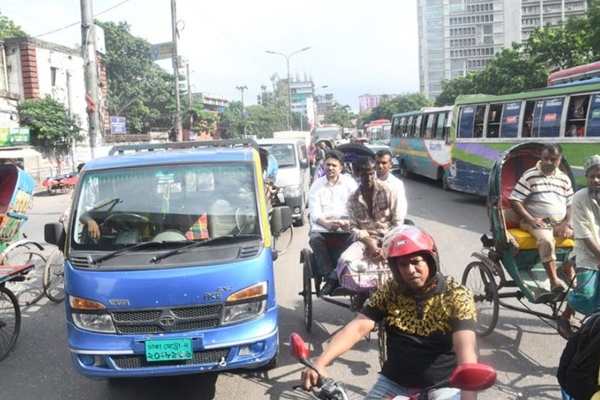
WEB DESK
Life started returning to normalcy in Bangladesh as the national holiday ended and the government relaxed curfew, imposed to control violence since last Friday night, for seven hours (from 10 am to 5 pm).
All the public and private establishments, including garment factories, banks and stock exchanges, have been reopened and employees and workers have joined their respective works spontaneously since the morning.
Most of the apparel factories, particularly situated in Dhaka and nearby districts, have been reopened following a meeting of the country’s business leaders with Prime Minister Sheikh Hasina on Monday.
Members of law enforcing agencies remain vigilant at different points of the city to thwart any unpleasant incident, reports Bangladesh Sanghbad Sangtha.
Broadband internet was restored to specific areas, including diplomatic and commercial zones, on Tuesday after five days of outage. But social networking site Facebook and free video-sharing website YouTube are yet to be opened.
After massive violence on Thursday and Friday over quota reform, the Bangladesh government on Friday midnight had declared a curfew across the country for an indefinite time and deployed an army to assist civilian administration. In the last week, at least 160 people, including three journalists and a few police personnel have lost their lives while thousands got injured, many of them seriously injured. Due to the imposition of nationwide curfew and internet blackout, common people, travellers, daily wagers, and the fragile economy of Bangladesh suffered a lot.
On Monday, Bangladesh Prime Minister Sheikh Hasina accused the Bangladesh Jamaat-e-Islami group and the opposition Bangladesh Nationalist Party (BNP) of trying to carry out terrorist activities during the curfew. She warned that the government will not spare the “BNP-Jamaat Clique” this time as easily as in the past.
More than 2500 people, many of them opposition activists and leaders, have been arrested across the country in the last four days, according to police.
After the deployment of armed forces, violent clashes were reduced and the situation came under control, still, it will take time for the situation to become normal, said Army Chief General Waker-Uz-Zaman on Monday. The Army chief on Tuesday called on the president of Bangladesh Mohammed Shahabuddin at Bangabhaban in Dhaka and during that he said that soldiers would patrol the streets until the return of normalcy in the country, the president’s press secretary told media.
